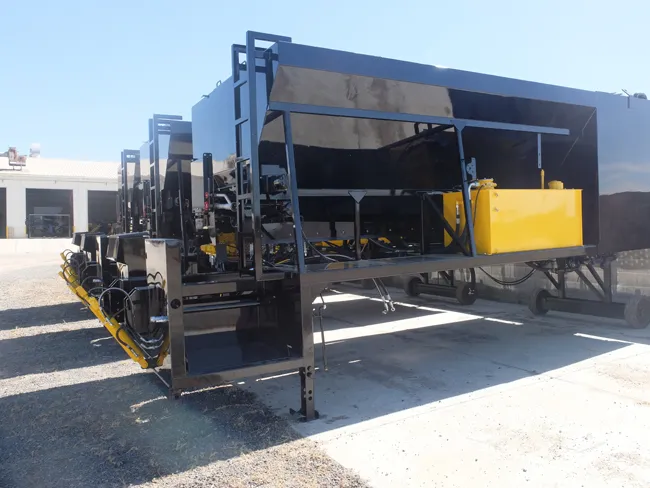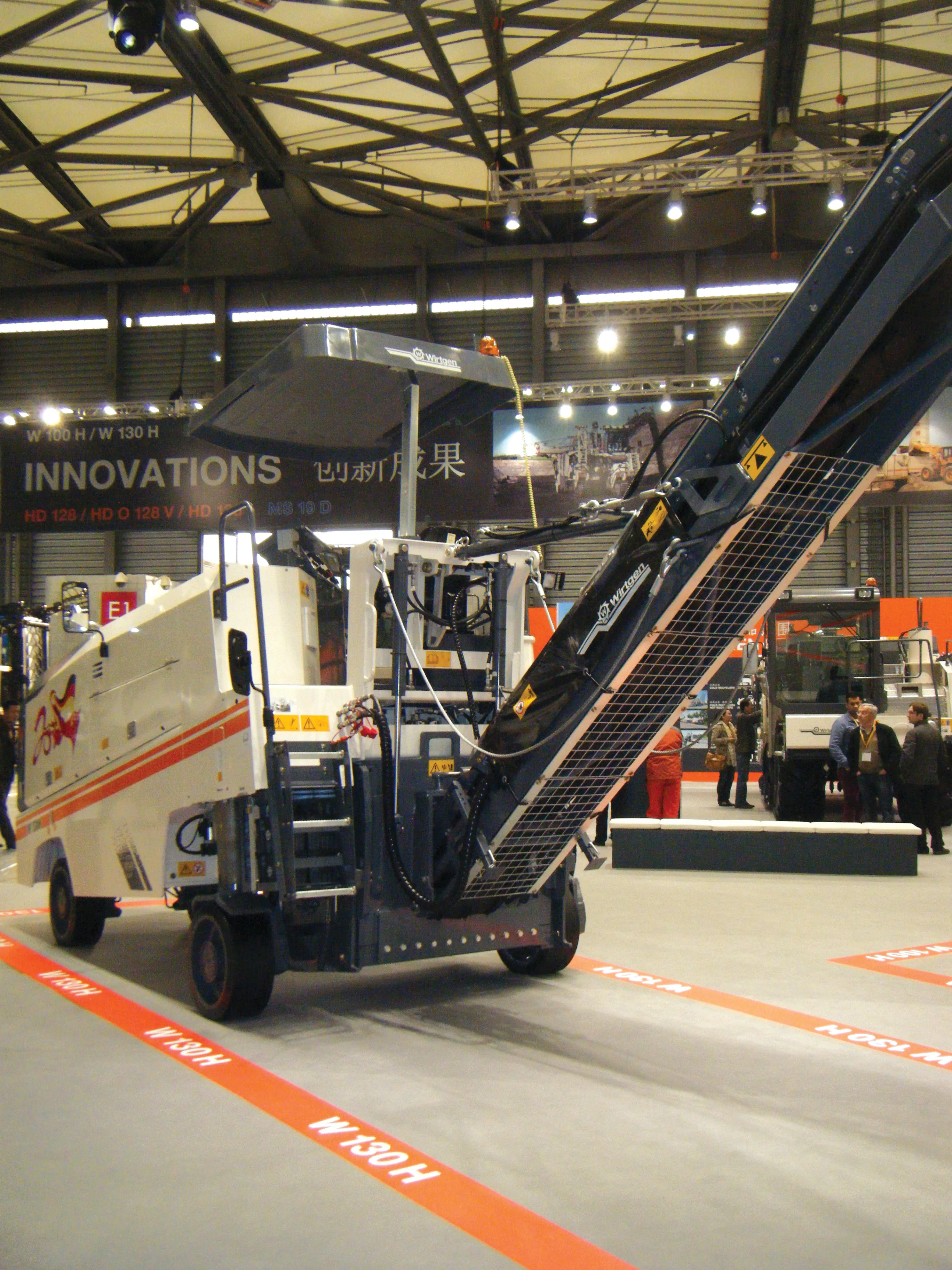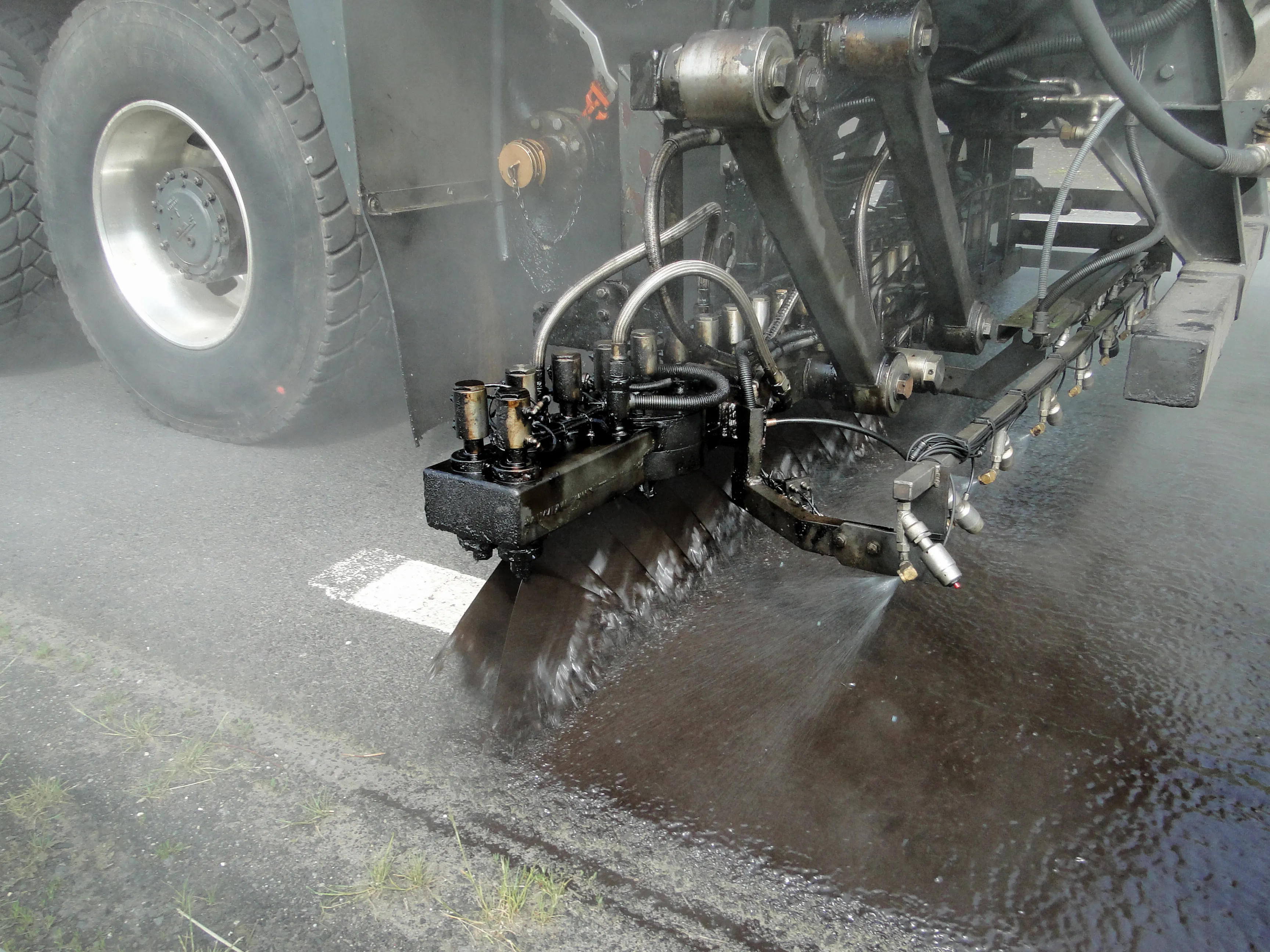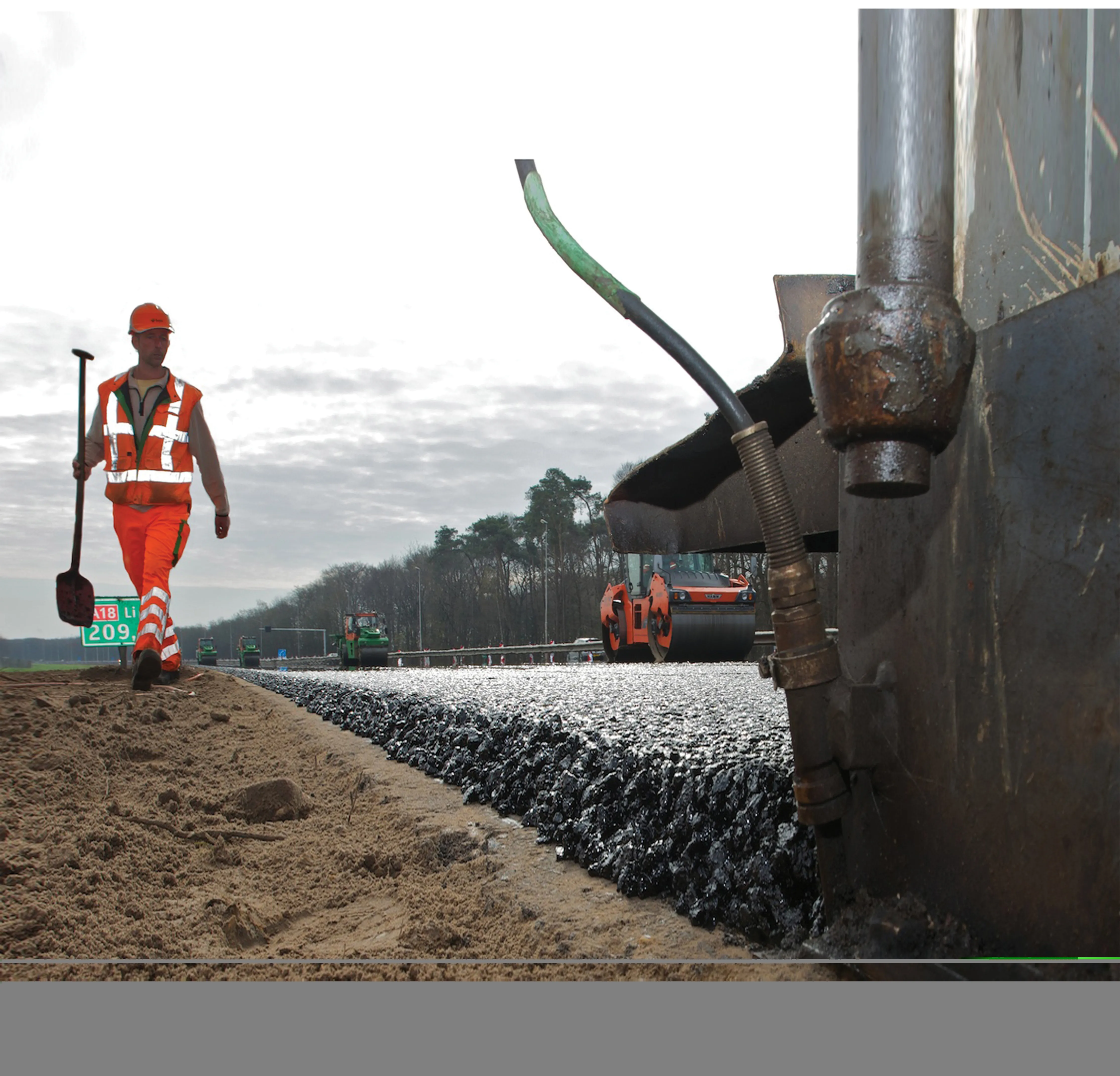
Doug Hogue is vice president at VSS Macropaver and said, “The D version is more of an export model. The E is more of a domestic machine.”
For the E series variant, power is supplied by the truck engine and the firm opted this setup as having an additional engine on the chassis would have been more complex. The truck engine already meets emissions legislation, so there was no need in searching for a compact diesel able to meet the emissions requirements. Hogue added that this offers an additional benefit and said that it is much quieter in operation.
The 12E model has been available with a truck base from Mack and a Peterbilt option is also being offered. But producing a version of the E series machine for Western Europe, for example, would mean meeting EU requirements and working with a truck firm to ensure its engine performance was suitable. This would be lengthy and rule out the cost benefit of launching the E series model into the EU market.
However, Hogue said that VSS is finding customers for its D series model in Eastern Europe, Asia and Latin America. “A lot of those markets are still using Tier 3 engines.”
VSS Macropaver has also been active co-developing a new website that gives comprehensive information on microsurfacing techniques. The website, RoadResouce.org went live in mid-2018 and its development was assisted by two major US associations for pavement preservation: the Asphalt Emulsion Manufacturers Association (AEMA); and the Asphalt Recycling and Reclaiming Association (ARRA).
Hogue explained that the website is not aimed at promoting equipment from any specific supplier in the field, but is instead intended to raise understanding about microsurfacing techniques. He said that knowledge levels about this can vary widely and that road repair methods can be very localised, even in the US.
The website teaches about emulsion-based processes; it also shows cost data, and which type of processes are applicable to repairs. Hogue said, “We’re still going to see how it’ll be used by agencies. It’s industry-wide and we’re excited by it.”
The information on microsurfacing technology is applicable worldwide, though the website’s cost data is for North America.
Hogue said that microsurfacing techniques can prove particularly useful in certain applications. For example in urban areas where there may be buried utilities close to the road surface, conventional milling and repaving may not be suitable. For residential roads or areas with comparatively low traffic volumes (and few heavy trucks), the technique is particularly suitable.
Microsurfacing using a multilayer system allows a speedy and cost-effective repair on a road surface that has largely failed, even if it has large potholes. This method avoids the need for a full structural rebuild of a road section. He said, “We use slurry to fill the voids and then come back over the top with an asphalt rubber chipseal.”
He said that the mix will comprise around 20% crumb rubber from old vehicle tyres and that will perform well both in hot summer and cold winter conditions. Improvements in microsurfacing technology have also delivered better wear life and Hogue said that this can cost less than a cheap mill and fill job, while lasting longer.
The multilayer system offers distinct advantages over earlier, less sophisticated microsurfacing systems. And at a time when asphalt prices are rising, Hogue said that microsurfacing offers a cost-effective way of repairing roads. The technology is well-proven and he said that multilayer microsurfacing is used throughout the western US, California, New Mexico and Arizona.









